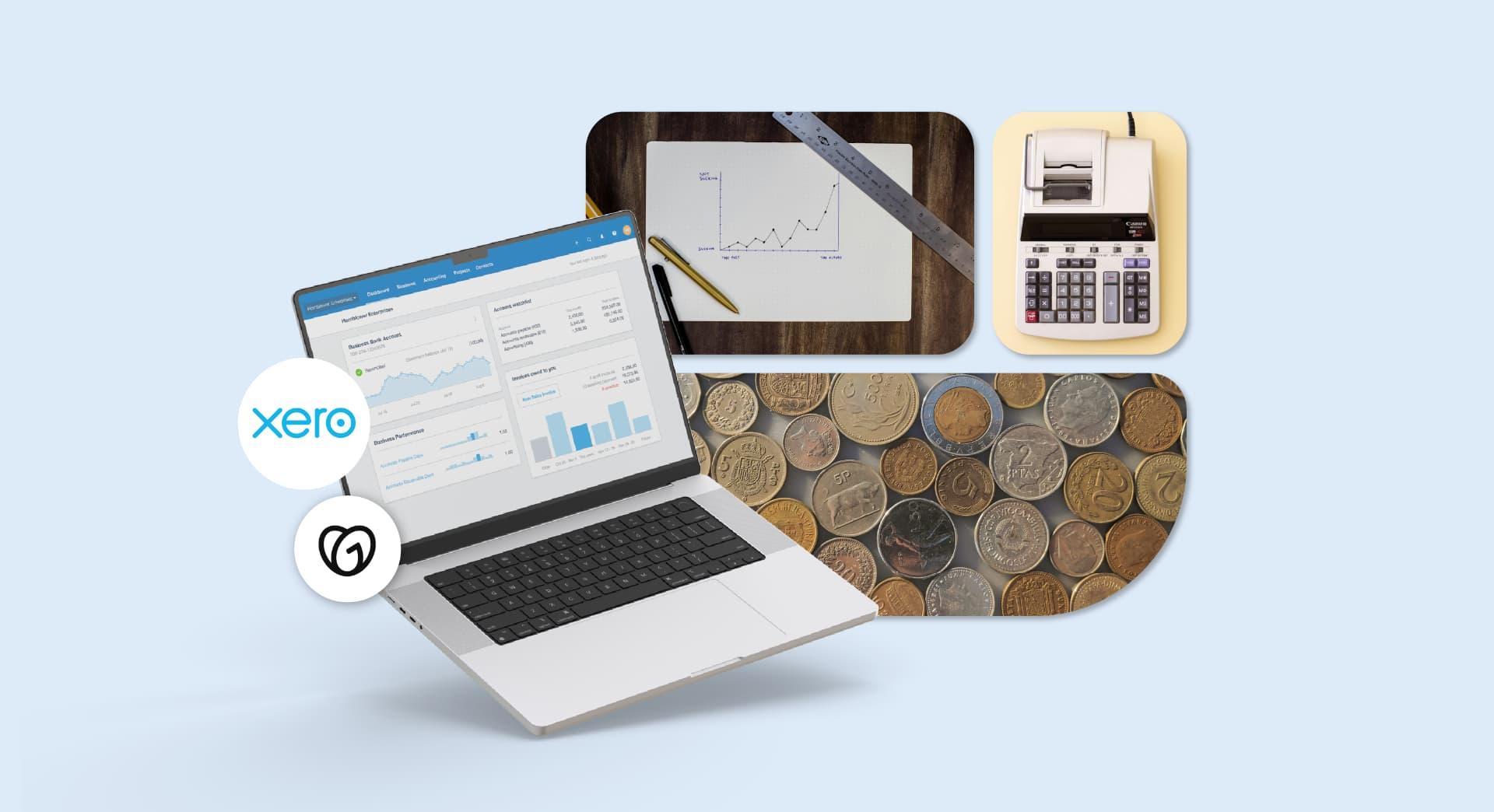US statesman Benjamin Franklin once said that nothing in the world is certain except for death and taxes.
You’ll have to submit a Self Assessment Tax Return every year without fail if you:
- Are self employed
- Rent out property
- Are a partner in a business
- Have any other form of untaxed income

If you have set up a business as a Limited Company, you will need to file a Company Tax Return every year. This could be instead of — or as well as — a Self Assessment Tax Return, depending on how you have structured your company’s finances.
With the first of this tax year’s deadlines approaching, it’s time to make sure you have all the tax return dates clearly marked up in your diary. If you miss them, you could incur penalties.
In this article, we highlight the timelines for submitting your tax returns and answer a few questions that new business owners and start-ups commonly have about tax.
What is a tax return?
A tax return is a document that is used to work out how much tax a business or person owes HM Revenue and Customs (HMRC) every tax year, which runs from 6 April to 5 April of the following year.
For many people in the UK, the tax they owe is deducted automatically by PAYE, every week or month when they are paid their salary, along with National Insurance.
However, around 12 million people in the UK do not pay their taxes in this way.
These people have to file a tax return through a system called Self Assessment, before a cut-off date set by HMRC every year.
As mentioned above, owners of Limited Companies have to file Company Tax Returns. Again, these could be instead of or on top of a Self-Assessment Tax Return.
Editor’s note: If you’re expecting a refund this year, why not use it to make your business idea real with a website? Do it yourself with GoDaddy’s AI site builder or let their pros build it for you.
Who needs to do a tax return?
If you earn any income outside of PAYE, you’ll usually need to file an income tax return.
This includes:
- Sole traders
- Partners in businesses
- Anyone who earns previously untaxed money from renting out property
- Those who earn extra income from savings, investments and dividends

If you have set up in business as a Limited Company as opposed to a Sole Trader, you’ll be liable for Corporation Tax every year and have to file a Company Tax Return.
Still not sure if you need to file a tax return? Visit this page.
Related: 25 side hustle ideas to make extra money this year
How do I complete a tax return?
The system used for filing and paying an income tax return is called Self Assessment.
You can register for Self Assessment here.
When it comes to filing it, you can do so online or by filling in a paper SA100 form. The paper form takes longer to process so the submission deadline is midnight 31 October 2024.
Submit an electronic tax return up until 31 January 2025.
The Self Assessment form features a series of questions relating to your:
- Income
- Expenses
- Student loan payments, if you have any of these outstanding
Once you have filled out the questions, the Self Assessment system will generate a figure for the amount of tax you owe.
Is it easy to do your own tax return?

Filing out a tax return for the first time usually takes some time and effort.
You must tell HMRC by 5 October 2024 if you need to complete a tax return and have not sent one before.
It will be easiest to carry out your Self Assessment if you have kept your accounts up to date throughout the year, detailing all income and outgoings.
Some people like to use accounting software like GoSimpleTax or an accountant to help them get their figures right. This also helps ensure they are including all the correct expenses on their reports.
Pro tip: Open a separate bank account for your small business. Your tax returns will be much easier to complete if your business income and expenses have been kept separate from your personal finances.
When does the tax year run from and to?
The tax year (aka the fiscal year) runs from 6th April to 5th April the following year.
What are the tax return deadlines for 2024?
5 October 2024: If you intend to file a tax return for the first time, you must inform HMRC of this intention by this date.
31 October 2024, midnight: This is the deadline for submitting your 2023/2024 Self Assessment by paper.
31 January 2025, midnight: This is the deadline for submitting your 2023/2024 online Self Assessment Tax Return and for paying the tax you owe.
31 July: Once you have paid your first tax bill, HMRC usually begins to take payments in advance of the money you will earn the following year. The deadline for making these advance payments is 31 July 2025.
Deadline for submitting a Company Tax Return: This is due 12 months after the end of the accounting period it covers. This is usually the same period as the financial year but may be different in your first year of business.
Deadline for paying Corporation Tax: Nine months and one day after the end of the accounting period.
What expenses can I claim for on my tax return?
Claiming for expenses is a complicated subject, which is why both sole traders and company directors regularly enlist accountants to help them get everything right.
Different rules apply, depending on whether you are a sole trader or Limited Company.
For sole traders, some expenses related to the running costs of your business can be deducted from your taxes owed to work out your taxable profit.

For example:
Let’s say your turnover is £40,000, and you claim £10,000 in allowable expenses. You only pay tax on the remaining £30,000, known as your taxable profit.
You can only deduct ‘allowable expenses’ though.
These could include:
- Office costs such as stationary, postage, ink cartridges, insurance costs etc
- Car, van and travel expenses including hotel rooms and train fares etc
- Clothing expenses like uniforms and protective clothing
- Staff expenses such as pensions
- Legal and financial costs including overdraft and banking charges
- Marketing, entertainment and subscriptions: This is where you usually claim for the cost of your website, web hosting and professional email address.
There are specific rules about how to claim for expenses in each of these categories. (You'll find a complete list here.)
To find out more about the difference between Sole Trader and Limited Company expenses and to dig deeper into the specifics of what each expense category includes, visit this site.
This post does not represent tax advice. It's best to consult with a tax professional when preparing your tax returns.
Frequently asked questions about tax return deadlines in the UK
Still have questions? The answers may be here.
When can I file my taxes for 2024 in the UK?
Your tax return deadline depends on how you choose to file your returns:
- If you’re filing a paper tax return, you must submit it by midnight 31 October 2024.
- If you’re filing an online tax return, you must have it in by midnight 31 January 2025.
HM Revenue and Customs (HMRC) must receive any money you owe by midnight 31 January 2025.
What is the deadline for taxes in 2024?
If you plan to send in a paper tax return, it must be in by midnight 31 October 2024. You have more time if you opt for electronic filing, as these are due by midnight 31 January 2025.
What is the tax filing deadline in the UK?
Submit your taxes as a paper return and you’ll need to have them in by midnight 31 October 2024. Take the electronic filing route and you have until midnight 31 January 2025 to submit them.
Why is UK tax year end 5 April?
Kind of an interesting story, this.
The UK’s tax year for individuals runs from 6 April to the following 5 April. This is for historical reasons, established when England moved from the Julian to the Gregorian calendar in 1752.
There was a discrepancy between the number of days in the two calendars and, in order to make the year 1752 add up to 365 days, its ending was moved to 5 April 1753.
The UK’s modern tax system and infrastructure revolve around this date, although there have been proposals to change it.
How late can you file a tax return UK?
This depends on how you file:
- If you’re submitting a paper tax return, you must submit it by midnight 31 October 2024.
- If you’re filing an online return, you must submit it by midnight 31 January 2025.
You should know that there are penalties for submitting your tax returns or paying late.
If your tax return is up to three months late, you’ll pay a penalty of £100. The penalty increases if you submit your returns later than that, or if you pay your tax bill late.
Speaking of which, you’ll be charged interest on late payments. Get details, including an estimate of what you’ll owe if you’re late, here.
What happens if you don’t file a tax return in the UK?
If you are required to submit a tax return and fail to, you’ll be assessed fines that continue to add up until you do.
If you believe you no longer need to file a tax return, you must tell HMRC. If HMRC agrees, they’ll send a letter saying you do not need to file a return.
A few reasons for this change in status may include:
- You are no longer self-employed (details here)
- You no longer rent out property
- You no longer pay the High Income Child Benefit Charge
- Your income is below the £150,000 threshold
Not sure you need to submit a tax return? This should help you decide.








